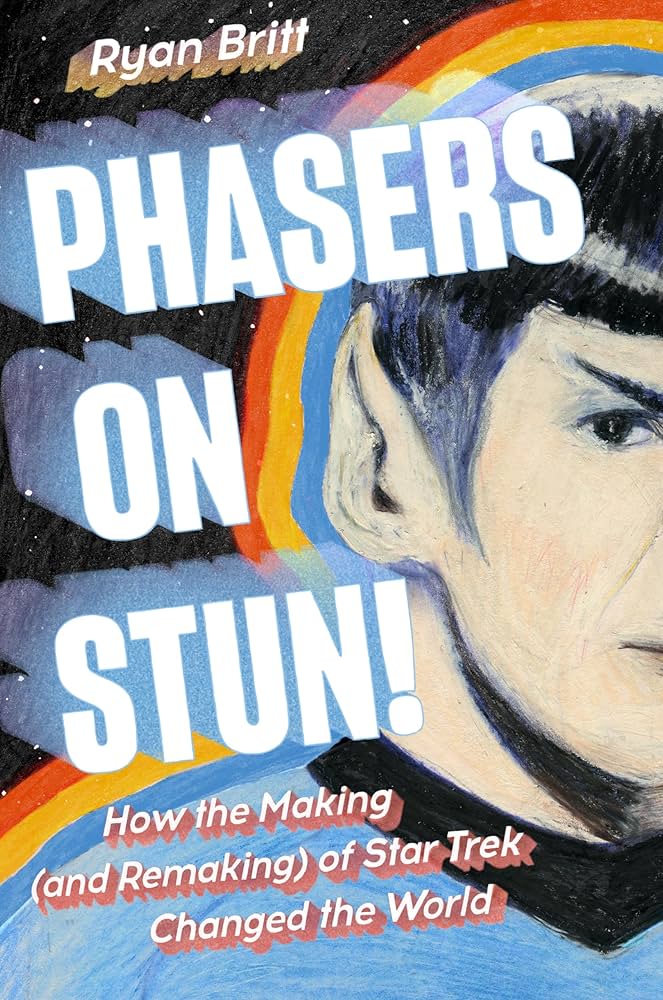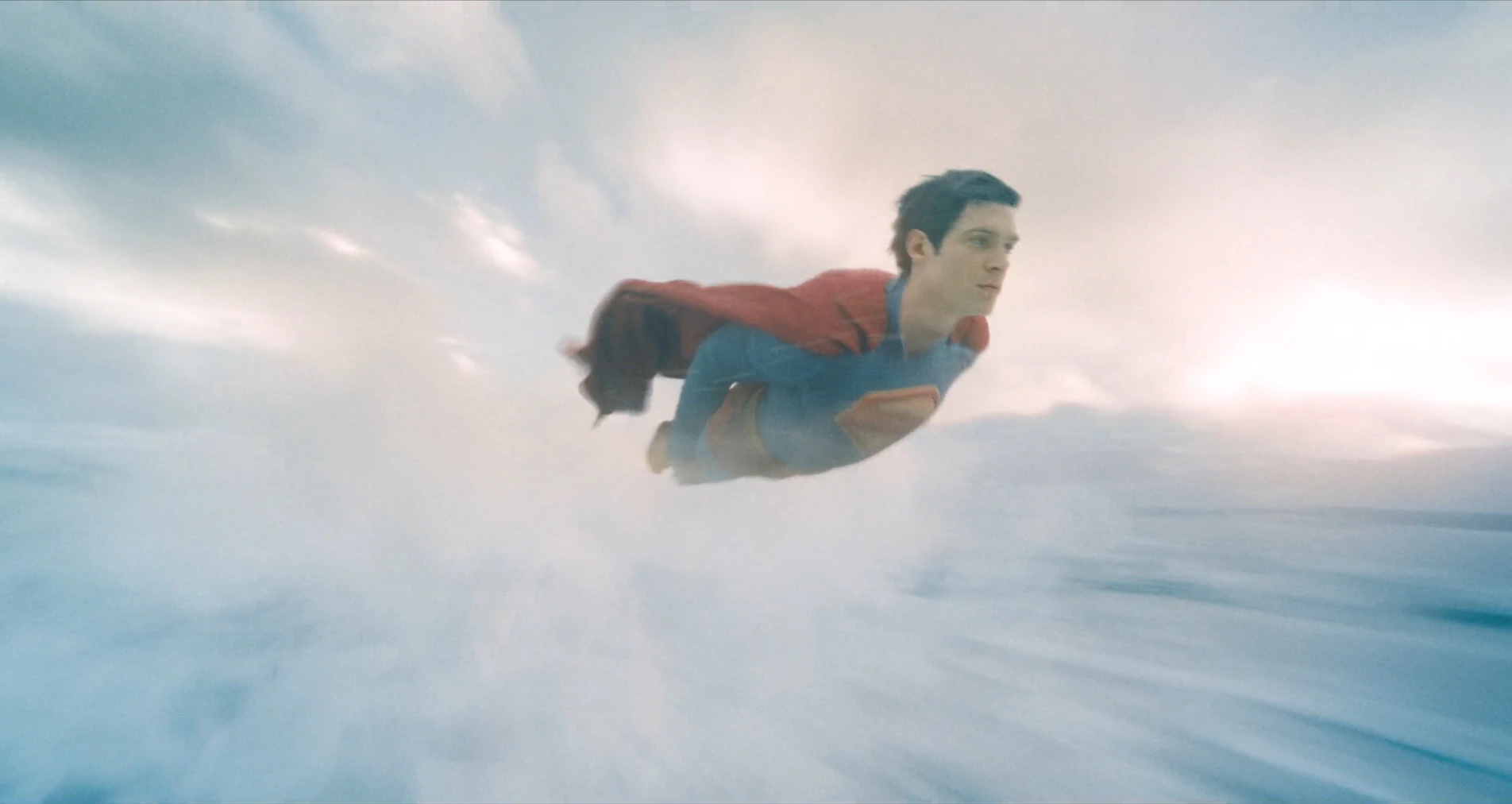The New Who: When Worlds Elide
May 2, 2020
Doctor Who, “It Takes You Away”
Series 11, Episode 9
Written by Ed Himes
Directed by Jamie Childs
Starring Jodie Whittaker, Tosin Cole, Mandip Gill, and Bradley Walsh
Guest Starring Sharon D. Clarke, Kevin Eldon, Christian Rubeck, Lisa Stokke, and Eleanor Wallworks
Original Broadcast 2 December 2018 (49 minutes)

No matter how good “It Takes You Away” may be, this ninth episode of Doctor Who’s Series 11 shall forever be known as the installment where, during its climax, the Doctor converses with a talking frog. Yes, you read those words correctly. Near the conclusion of “It Takes You Away,” the Thirteenth Doctor discusses friendship, loyalty, and loneliness with a talking frog.
Bonkers, you say? Indubitably.
Absurd, you shriek? Unquestionably.
Proof, you wonder, that Doctor Who—after 55 years and 847 episodes—has finally gone round the bend? Hardly.
“It Takes You Away” lives up to its title by taking viewers not only to present-day Norway but also to a completely new universe that the Thirteenth Doctor (Jodie Whittaker), with the aid of companions Ryan Sinclair (Tosin Cole), Yasmin “Yaz” Khan (Mandip Gill), and Graham O’Brien (Bradley Walsh), discovers is a living, sentient entity. As unseen plot twists go, that’s a doozy, but hardly the only surprise in store for audience members swept away by this insane, yet remarkably touching episode.
Ed Himes’s crackerjack script begins with one of those irresistible mysteries that serve as Who’s dramatic lifeblood. Team TARDIS visits a gorgeous Norwegian fjord to find a lone sheep grazing its fields, prompting the Doctor to mention a future conflict called the Woolly Rebellion that, 193 years hence, will occasion “a total re-negotiation of the sheep-human relationship. Utter bloodbath.” This fun bit of business, however, falls by the wayside when our intrepid travellers chance upon an abandoned cabin whose boarded-up windows suggest paranoia of the first order. When Ryan and Yaz notice someone (or perhaps some thing) moving around inside, the Doctor cannot wait to investigate. Entering the cabin’s shadowy interior, she and her chums find evidence of recent habitation, yet no one presently at home, causing Ryan to comment, “Maybe we shouldn’t be in here.”
Obeying this stricture, however, would be no fun, not that much fun is possible once they locate a blind teenager named Hanne (Eleanor Wallwork) hiding in a closet, having been abandoned by her father, Erik (Christian Rubeck), a widower still grieving his wife’s death. Erik, indeed, moved Hanne and himself from Oslo to this remote cottage in hopes of beginning a new life, but has hastily fortified the structure to protect it from an unknown creature that Hanne and Team TARDIS hear lurking in the fjord’s forest. This threat proves to be nothing more than recorded animal growls played over large speakers hidden by Erik in the cottage’s yard to frighten Hanne from venturing outdoors. Even spookier is an upstairs, full-length mirror that casts no reflections. The blind Hanne has no knowledge of this strange object, leading the Doctor to theorize that the mirror is, in fact, a portal to another dimension. Erik must have traveled through this doorway four days ago, when Hanne last spoke to him, so, after deputizing Ryan as Hanne’s guardian, the Doctor enlists Yaz and Graham to help her mount a rescue.
They then, thanks the Doctor’s trusty sonic screwdriver, walk through the mirror and enter what the Doctor recognizes as an anti-zone, a strange sort of negative space that is all dark caverns and dripping rock walls but that, in truth, serves as a passageway between our heroes’ world and the dimension on the other side of the glass. This mirrorworld reverses everyone’s and everything’s image, but before arriving there, the Doctor, Yaz, and Graham come upon Ribbons of the Seven Stomachs (Kevin Eldon), a strange creature who inhabits the anti-zone, who constructs lamps (in the form of red, glowing balloons) that provide the zone’s only light, and who barters with the Doctor, wishing to trade her sonic screwdriver for information about Erik’s journey. The fact that the caverns are filled with “flesh moths”—yes, moths that, when provoked, strip the flesh off all living creatures—is but one more hurdle to overcome before Team TARDIS makes it safely to the other side.
Despite this anti-zone’s strangeness, Ribbons’s predictable death by flesh moth (falling victim to his own greed) signals that we’re in familiar narrative territory. Mirrors becoming portals to unknown worlds is a common SF and fantasy trope (whether in Stephen R. Donaldson’s Mordant’s Need novels or John Carpenter’s 1987 film Prince of Darkness, to name only two), while the entire setup reminds careful viewers of C.S. Lewis’s The Lion, the Witch, and the Wardrobe, with the Doctor and her companions serving the same role as the Pevensie children in Lewis’s book, and Hanne’s mirror substituting for the wardrobe that grants them passage to the magical land of Narnia.
And mirrorworld appears, at first blush, magical. The Doctor, Yaz, and Graham discover Erik cooking breakfast for he and his wife, Trine (Lisa Stokke), who not only remains alive in this new place but also remains aware of her miraculous resurrection. “I mean, I died. I remember it, yet here I am,” Trine says after Yaz wonders if mirrorworld is an alternate reality where people go after death. If true, this development would mean that “It Takes You Away” is another conventional, if compelling, entry in the death-as-a-parallel-world subgenre so favored by science-fiction and fantasy stories.
Yet, at this point, Ed Himes raises both the narrative and emotional stakes to transform his episode into something far more inventive, yet less satisfying than necessary. When Trine tells Graham that “his friend” is nearby, Graham discovers Sharon D. Clarke’s glorious Grace Sinclair-O’Brien in the cottage’s garden. Grace remembers her married life with Graham, as well as her death saving Ryan and Yaz from Stenza warrior T’zim-Sha (Samuel Oatley) in “The Woman Who Fell to Earth,” Series 11’s premiere episode. Graham is emotionally devastated by this discovery, alternately bemused and overjoyed that his wife survives in mirrorworld. But problems are afoot: that world begins to quake and spasm, leading the Doctor to theorize that the anti-zone is a buffer protecting our universe from the Solitract, a Time Lord fable told by the Doctor’s fifth and favorite grandmother (out of seven such matriarchs) when, as a child, the Doctor couldn’t sleep. This legend posits that the Solitract is an ancient consciousness that nearly prevented our universe from forming. “In the beginning,” the Doctor tells a flabbergasted Yaz, “pre-Time, pre-everything, all the laws and elements and nuts and bolts of the universe were there: light, matter, maths, and so on. But they couldn’t fit together properly because the Solitract was there.” By keeping our universe’s constituents from harmonizing after the Big Bang, the Solitract threatened all creation before creation existed, so our universe, according to the Doctor, “managed to exile the Solitract to a separate, unreachable existence” that the sentient Solitract—so lonely that it feared dying—nonetheless found a way to bridge, creating the anti-zone as a way to touch our dimension.
Got that? Himes’s script bandies these concepts about so quickly—and Jodie Whittaker delivers these lines so convincingly—that the viewer barely notices how the Doctor becomes an exposition machine in this scene, rattling off remarkable notions about creation and consciousness that, were we to pause for even a brief respite, might fall to pieces before our minds’ eyes. Although this explanation is couched as the sort of wacky bedtime story that people tell sleepless grandkids, Himes then accelerates his episode’s pace. The story’s most fascinating implications, as a result, don’t fully register even when we learn that the Solitract has endured such devastating isolation that it creates mirrorworld in a forlorn bid to forge contact with the impossibly ancient object of its affection: the universe itself.
This concept is a head-spinner, as is the fact that Trine and Grace are not their actual selves come back to life, but instead avatars created by the Solitract to induce their partners to stay with them (and, thereby, to provide the Solitract with companionship). Yet since matter from our universe and matter from “the Solitract plane” (as the Doctor comes to call mirrorworld) are incompatible, the presence of so many people in mirrorworld threatens to destroy both places. Once this revelation becomes clear, Himes rushes his teleplay to its conclusion, in which Graham, who at one point tells the Doctor that he’ll stay with Grace in mirrorworld to enjoy the life with her that death has sundered, inevitably concludes that she cannot be his dead wife because this mirror Grace expresses no concern about Ryan’s safety once Ryan enters the anti-zone with Hanne (and nearly becomes the flesh moths’ newest meal).
The problem here is that “It Takes You Away” froths with so many marvelous concepts and authentic emotions that this installment demands to be longer, either a two-part episode or a two-hour telefilm. Sharon D. Clarke and Bradley Walsh are so touching in their scenes together, so restrained in their joy at finding one another again after being so decisively separated, that when they banter about why Graham wears around his neck a small golden-frog pendant that he once gave Grace as a Christmas gift (“you’re wearing it as a way of keeping me close,” Grace says), Clarke’s gentle delivery is crushing in its effect, as is her later response, after Graham wonders how she can be alive and well, that “I feel like me.” If this moment doesn’t bring you to tears, nothing will.
Himes’s writing is so good here that the mirrorworld sequence should go on and on and on, but the strictures imposed upon him by commercial television’s requirements—principally Doctor Who’s one-hour running time—ensures that these scenes emerge as pencil sketches rather than oil paintings. “It Takes You Away” must race to the finish line, so despite my preference that Himes mine the concept of the Solitract plane for all its worth, he batters his narrative to a conclusion that, by all rights, should be—but isn’t—too ludicrous to accept. When everyone save the Doctor leaves mirrorworld to prevent its destruction, she finds herself in a bright room filled with heavenly light and housing a wooden chair upon which sits a green frog that speaks in Grace Sinclair’s voice.
Crazy, right? This event should tip “It Takes You Away” so far over the precipice of plausibility that we simply laugh ourselves silly, but Jodie Whittaker and Sharon D. Clarke make this scene work. The Solitract says, “My own form is endless, but this frog is a form that delights me, as it once delighted Grace” before asking the Doctor to share stories of the universe from which it was parted so long ago. And the Doctor obliges, telling her new friend—a conscious, sentient cosmos that masquerades as a frog!—about how incredibly beautiful our home can be. Thanks to Whittaker and Clarke, this conversation works as well as anything Doctor Who has offered since its 2005 revival appeared on our screens.
Friends, my eyes were wet during this exchange, as yours will be when watching “It Takes You Away.” Ed Himes, under Chris Chibnall’s supervision, offers us an extraordinary meditation upon loss, loneliness, and grief that deserves to be longer—and that I hope Doctor Who revisits in Series 12 (and Series 13, Series 14, and… well, you get the idea). Let us be thankful that this hour of television exists at all, so masterfully does it examine weighty themes, but Himes and Chibnall leave their viewers (or, at least, this viewer) slightly unfulfilled. While pausing too long upon scenes of friends and spouses grieving their loved ones risks indulging the dreary philosophical cant and maudlin emotions of bad melodrama, “It Takes You Away” is too good to fall into these narrative traps. This episode is ridiculous and serious, frustrating and fascinating, disappointing and stunning all at once. In other words, it is classic Doctor Who even if it just misses the chance to be a timeless Who classic.
But please, faithful reader, judge for yourself. “It Takes You Away” will do just that, making its flaws, in the end, forgivable when compared to its glories.






